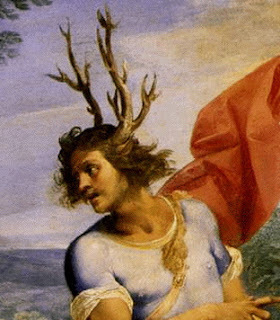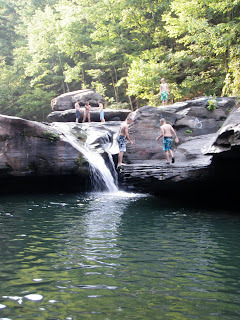gratitude
Giving Thanks In The
“‘What a damned country,’ he said. Watching the river, he had not noticed the movement at the far corner of the garden below him, but now as he swung the glasses down he saw there one of the ragged, black-robed boys who raked and sprinkled the paths every day….He stood up, and Chapman stepped back, not to be caught watching, but the boy only pulled on his robe again. Then he knelt once more on the rug of his turban and bowed himself in prayer towards the east…..The praying boy was not pathetic or repulsive or ridiculous. His every move was assured, completely natural. His touching of the earth with his forehead made Chapman want somehow to lay a hand on his bent back. They have more death than we do, Chapman thought. Whatever he is praying to has more death in it than anything we know. Maybe it had more life too. Suppose he had sent up a prayer of thanksgiving a little while ago when he found his son out of danger? He had been doing something like praying all night, praying to modern medicine, propitiating science, purifying himself with germicides, placating the germ theory of disease. But suppose he had prayed in thanksgiving, where would he have directed his prayer? Not to God, not to Allah, not to the Nile or any of its creature-gods or the deities of light. To some laboratory technician in a white coat. To the Antibiotic God. For the first time it occurred to him what the word ‘antibiotic’ really meant." – Wallace Stegner, “The City Of The Living,” in Collected Stories of Wallace Stegner. (New York: Penguin Books, 1991) 524-5. (Boldface emphasis is mine.)
“We live in the Antibiotic Age, and Antibiotic means literally ‘against life’. We had better not be against life. That is the way to become as extinct as the dinosaurs. And if, as the population experts were guessing in November 1954, the human race will (other things being equal) have increased so much in the next three hundred years that we will only have a square yard of ground apiece to stand on, then we may want to take turns running to some preserved place such as Dinosaur….That means we need as much wilderness as can still be saved. There isn’t much left, and there is no more where the old open spaces came from.” – Wallace Stegner, This Is Dinosaur: Echo Park Country And Its Magic Rivers. (New York: Alfred A. Knopf, 1955) 14.
The Ethics of Hunting
Just as there are many versions of the myth, so there are many interpretations, and many things that Actaeon and Artemis might symbolize. The divinity of Artemis suggests to some that hunters seek something much loftier than meat for their table. Her femininity and virginity suggest to others that hunting represents sexual violence in another guise.
Both of these may be correct, but let me offer a third possibility: perhaps this is a story about virtue. Actaeon acts without virtue, and he then becomes the victim of his own plans. He makes the mistake of thinking that a hunter is the rightful possessor of all he sees, and so he fails to act with humility and gratitude. As a result, he loses everything, including those relationships that were most dear to him.
The myth of Actaeon is a vivid picture of what good hunters know: the hunter is not lord of the forest nor master of nature. Most of us live our lives as far from predation as we can arrange. A certain type of hunter attempts to erase some of that distance. The best hunters may be those who, in doing so, discover their true place in nature and emerge from the forest and field remembering their place with humility and gratitude. Actaeon forgets who he is when he attempts to take Artemis as his own, and his forgetfulness is absolute.
People Of The Waters That Are Never Still
My family has since lost the languages those ancestors spoke, and this fusion of tribes has adopted the linguistic fusion of English. I have no intention of claiming a legal place among either of the nations from which I am descended, nor even to name them here. But I find that the memory of both, and of the lands they lived on, is rooted deeply in my consciousness of who I am. Last year, while visiting the British Museum, I saw a display of various Native American peoples, including my own. It was the only time a museum has moved me to tears. The words and ways of my forebears may be mostly gone, but they are not forgotten. My father taught me to remember them and what they knew of the land we lived on, and often, while teaching me to know the woods, he would remind me that those woods were old family acquaintances.
Jacob Wawatie and Stephanie Pyne, in their article "Tracking in Pursuit of Knowledge," cite Russell Barsh as saying that "what is 'traditional' about traditional knowledge is not its antiquity but the way in which it is acquired and used." Our word "tradition" comes from Latin roots that mean something like "giving over" or "handing down." Traditional knowledge is knowledge that is a gift from one generation to the next, a gift we give because we ourselves were given it. I am grateful to my father, in ways that I may never have told him - in ways that perhaps words cannot begin to tell - for the traditions he learned and loved and passed on to me. I'm grateful that he has not let me forget.
There is, of course danger in emphasizing one's heritage and one's roots, especially if we make that the source of a distinction between ourselves and others, or a way of diminishing the lives and traditions of others. Just as much as it matters to me that I am from the people of the waters of the Catskills, it matters to me that my ancestors shared those waters with one another, people from two continents recognizing, each in the other, the waters from which both arose.
For all that I have received, for the traditions like waters pouring over the cliffs, gifts like the Kaaterskill Creek, let me give thanks. Let me give thanks with my life, offering to those who come after me, a taste of the sweetness of those same waters.
Gratitude
It being Thanksgiving, I’m doing some reading about gratitude. Just read through part of Norman Wirzba’s Living the Sabbath: Discovering the Rhythms of Rest and Delight. Chapter 1 has a section on food - very apropos for Americans this week - and in particular on the production of food.
Wirzba’s contention, one that strikes me as probably right, is that the way we produce meat is violent and alienating, and that our willingness to accept food that comes to us this way is symptomatic of a culture that is more motivated by fear than by gratitude.
This could turn into a rant about locavorism, but I don’t want to go there right now. My point - and Wirzba’s, I think - is not that we need to change our food production, but that we need to ask ourselves why we produce food as we do. And that we ought to ask ourselves if we - and our world - wouldn’t be better off if we received what we have with gratitude. I find this very difficult, but I’m going to give it a try.
Russell Frank and the 4/40 Program
Frank wrote a weekly column for the Centre Daily Times. At the time, he was an untenured professor in the Department of Communications at Penn State. Even though he did not know me, and surely had many demands on his time, Frank offered to meet me for coffee.
We met for three hours that day, during which I took pages of notes and basically wrote my syllabus for the course. He also gave me a stack of textbooks from his office, offered to guest-lecture in my class (which he later did, several times) and then, to top it all off, he paid for the coffee.
I protested that I was getting all the benefit from this and that I should pay. He replied, "My rule is this: the student never pays." Instead of paying him back, he said, I could "pay it forward" to some of my students.
So I began what I now call The 4/40 program. Whenever I meet students for a meal or coffee, I explain this to them: during their four years of undergraduate study with me (and if they visit me while they're in grad school) I pay. If they want, then they can visit me sometime in the next forty years and take me out for a meal or, better yet, they can use the next forty years to take someone else out for a meal.
I find these meals are always worthwhile. Much of the best learning in college happens outside the classroom, in informal conversations, often while breaking bread together. I teach because I love teaching, and these meals or coffees have provided me with some of my favorite classrooms: coffee shops, restaurants, the dining room table or kitchen in our home.
So to any of my students who may be reading this: don't thank me, thank Russell Frank (you can find his email at the link above or right here if you want). And if you benefited from the coffee, or the meal, pay it forward to someone else.
And come back and visit sometime.

